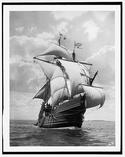
Since the time I last updated the information, it appears that good old Chris has fallen into disrepute, and there is a major effort to reinvent the holiday as Indigenous Peoples Day.
COLUMBUS DISCOVERED AMERICA ... RIGHT?
Well, not exactly -- even though it may be what you learned in grammar school.
● Point one: It depends on what is meant by the word discover.
Christopher Columbus was not the first of human kind to set foot on the North American Continent. There were already indigenous peoples living there when he arrived, both on the islands where he did set foot, and on the North American continent, upon which he did not set foot.
Columbus wasn't even the first European to set foot there, either. In 1960, undeniable proof of Vikings in North America came to light at L'Anse aux Meadows near Newfoundland, Canada. Islandic-style house foundations gave proof that the Vikings briefly settled there around 1100 (five hundred years before Columbus arrived), and artifacts including a needle whetstone, a soapstone spindle whorl, and bronze ring-pins of the Norsemen were also convincing evidence.
Hall at L'Anse aux Meadows by Eric Titcombe Needle whetstone & soapstone spindal whorl – Photo by: Leif Ericson – Photo:
Source: www.flicker.com R.Chan for Parks Canada https://www.pinterest.com/ http://www.timetoast.com
• 530 AD - St. Brendan
The story of St. Brendan, from Ireland, sailing to America certainly falls within the myth category.
• 1170 AD - Prince Madoc of Wales
Madoc (Madog or Madawg) ap Owain Gwynedd was a Welsh prince who, according to legend, discovered America in 1170. The story is unconfirmed, but there is a growing belief among many Welsh in the US that Wales has a claim on the discovery of the continent.
The first written account of Madoc's story is in George Peckham's A True Report of the late Discoveries of the Newfound Landes (1583). There exists disputed archaeological evidence, three hill fort sites similar to Celtic hill forts, along the river in the area they are supposed to have "colonized". The Mandan Indians are reportedly the descendants of these early Welsh explorers. Unfortunately, there are no Mandan Indians left of pure blood to confirm this through DNA testing.
• 1398 AD - Henry Sinclair
Also in the myth category is Henry I Sinclair (sometimes written St. Clair), Earl of Orkney, Baron of Roslin, and Lord of Shetland (c.1345-c.1400). A Scottish explorer/nobleman and the grandfather of William Sinclair, 1st Earl of Caithness, the builder of Rosslyn Chapel, Henry is also noted for being the subject of legend that he undertook early explorations of Greenland and North America in about the year 1398.
How about the Jewish, the Chinese, the Egyptians, Scott Wolter, and everyone else suggested on the History Channel? Every year there are new discoveries with the potential of rewriting the history we're taught in school, and the ability to DNA test certain ancient finds may eventually be able to put to rest old myths and word of mouth stories and establish real evidence.
● Point two: It depends on what is meant by the word America in this context.
While it’s true that Columbus never set foot on what U.S. citizens consider “America,” he never claimed he had. At that time, explorers who discovered things they didn’t recognize, fell back on the writings of the ancients, assuming they had wider experience than those who came after.
Columbus must have believed the same thing. He is often accused of being confused, of not knowing where he had been or what he had discovered, but the problem then was less a matter of “naming” things as finding the original local names … which no one in Europe would have understood anyway. In all, he made four voyages to the Americas and explored a rather large area, but it wasn’t until the fourth trip that he determined he hadn’t located Asia but another continent heretofore unknown to the Europeans.
Source: Wikipedia
Through another ironic quirk of history, Vespucci didn’t name it, either. In fact, both Columbus and Vespucci believed what they discovered to be parts of Asia that, at that point, had not been explored by Europeans. Historians tell us that neither man had any concept of a new continent.
Amerigo Vespucci and his charts Photo of drawing:
Photos from: https://www.landofthebrave.info/amerigo-vespucci-facts.htm https://www.exploration-and-piracy.org
One source indicates Amerigo Vespucci was a merchant from Venice who owned a business in Spain outfitting ships for mercantile expeditions. Another claims he worked for Lorenzo de' Medici and was sent, in 1492, to work at the Seville, Spain branch of the Medici bank. According to that source, King Manual I of Portugal invited Vespucci to participate as observer in several exploratory voyages to the east coast of South America between 1499 and 1502. And, in fact, both versions might be correct.
However he got there, Vespucci accompanied those expeditions to South America and, as a result, wrote letters with glowing descriptions of the newly discovered countries which he called the lands of a "New World."
Vespucci’s letters were read by Martin Waldseemuller, a noted geographer, and Mathias Ringmann, who were preparing a reproduction of Ptolemy's treatise on geography. They decided to incorporate Vespucci's voyage into the treatise. Ringmann, acting as editor, was apparently unaware of Columbus’ discoveries fifteen years earlier and wrote the following in his introduction: “There is a fourth quarter of the world which Amerigo Vespucci has discovered and which for this reason we can call 'America' or the land of Americo."
Their work (entitled Cosmographiae Introductio) was published in April, 1507, and marked the first time the word America appeared in print.
And this is sooo not what I learned in high school history. Do we really know anything for sure?
According to Toby Lester, a contributing editor to The Atlantic and the author of The Fourth Part of the World, “History hasn’t served poor Matthias Ringmann nearly as well [as Martin Waldseemuller]. That doesn’t seem quite fair. So tonight let’s send up a few of our fireworks in honor of the man who had the audacity to declare, before anybody else, that the world had a fourth part—and to imagine that he might be the one who could give it a name.”
http://www.boston.com/bostonglobe/ideas/articles/2010/07/04/where_america_really_came_from/
Is nothing sacred? There is also a claim that the name America came from Richard Amerike, a Welsh-descended English merchant, Royal customs officer and Sheriff who had sponsored John Cabot's voyage to America in 1497.
DOES COLUMBUS GET THE CREDIT? A DOUBLE-EDGED SWORD
Stories have it that Columbus died broke and in jail, but for the most part, the history books still give Christopher Columbus the credit for “discovering” the new world and opening up the Americas to European colonization. They also lay the blame for the negative impacts of his arrival in the Western Hemisphere. A double-edged sword.
He is also blamed for the destruction of the native peoples of the islands he explored, and he is labeled a racist, as were most of the aristocracy of that period. People have expended many words on extolling his successes and virtues and criticizing his faults and failures. There is plenty to read, if you want to explore those avenues.
The Gallery Collection / Corbis
This date is celebrated not only in the United States but also as DÃa de ;a Raza (Day of the Race) in Latin America. In the late twentieth century it became a controversial holiday in some countries and has been re-named in others.
Día de la Raza (Discovery Day) is celebrated in the Bahamas, Spain, Argentina, Belize, and Uruguay using different names. In the United States, many Italian-Americans observe Columbus Day as a celebration of their heritage, rather than the arrival of the Europeans in the Western Hermisphere.
CONTROVERSAY OVER THE HOLIDAY
Although celebrated in some locations since the 1800s, Columbus Day as a national holiday was not declared until in 1937. Over the decades, as civil rights came into focus, it has become more and more controversial.
According to Nadra Kareen Nittle’s article in www.thoughtco.com, March, 2017, “Native American groups argue that the Italian explorer’s arrival in the New World ushered in genocide against indigenous peoples as well as the transatlantic slave trade.” Much like Thanksgiving, it highlights Western imperialism and the conquest of people of color.
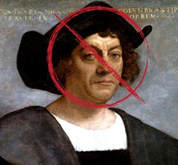
According to AIM, “Columbus was the beginning of the American holocaust, ethnic cleansing characterized by murder, torture, raping, pillaging, robbery, slavery, kidnapping, and forced removals of Indian people from their homelands … We say that to celebrate the legacy of this murderer is an affront to all Indian peoples, and others who truly understand this history.”
Eduardo Muñnos-Reuters Randalls Source: https://www.npr.org/sections/codeswitch
Island NY 2017
THE HOLIDAY CELEBRATES THE EVENT, NOT THE PERSON
First, in my opinion, it’s ridiculous to imagine the US government, or the people of the United States, intend to celebrate or condone murder, torture, slavery, and everything else AIM mentions or to purposely affront native Americans by having Columbus Day as a national holiday.
Second, regardless of who got to the Americas/New World first, until Columbus' voyages, the historical truth is that the two hemispheres of the world lived in isolation, each unaware of the existence of the other. Christopher Columbus' voyages changed that.
Third, Columbus Day marks the first encounter that brought together the original indigenous Americans and the future Americans and changed the history of the world.
Columbus Day does not commemorate the person nor does it celebrate the ultimate outcome of the voyages. It is the historical event Columbus Day honors and is neither a positive or negative comment on the value of the event or what happened subsequently. Remember, nearly all events commemorated by any culture, have their positive and negative impacts.
Personally, I believe an Indigenous People's Day would be a good thing, but not as a substitute for the remembering the event of the two separate parts of the world coming together. Perhaps the name of the holiday should be changes to "Discovery Day", the name given to the event by many other countries which celebrate it.
Sources: 2018
https://www.summitlighthouse.org/master-saint-germain-columbus/https://www.smithsonianmag.com/travel/columbus-confusion-about-the-new-world-140132422/
https://www.independent.co.uk/news/world/americas/columbus-day-2017-indigenous-peoples-day-cities-native-americans-christopher-columbus-a7990211.html
https://thehumanist.com/commentary/dont-celebrate-columbus-honor-native-people
https://www.csmonitor.com/1992/0325/25202.html
https://www.csmonitor.com/USA/USA-Update/2014/1013/Is-Indigenous-Peoples-Day-a-long-overdue-change-or-political-correctness-run-amok
https://www.thoughtco.com/case-against-celebrating-columbus-day-2834598
https://theamericanscholar.org/what-columbus-day-really-means/#.WvM1kYgvzcc
http://ucbhssp.berkeley.edu/sites/default/files/hssplessons/Columbus%20and%20Native%20Peoples%20Lesson.pdf
http://www.aish.com/shraga_blog/Columbus_the_Jew.html
https://www.factretriever.com/christopher-columbus-facts
https://historynewsnetwork.org/article/153569
https://www.npr.org/sections/codeswitch/2014/10/12/354274630/seattle-swaps-columbus-day-for-indigenous-peoples-day
https://thonyc.wordpress.com/2014/09/05/the-naming-of-america/
https://www.npr.org/sections/codeswitch/2014/10/12/354274630/seattle-swaps-columbus-day-for-indigenous-peoples-day
Sources prior to 2018:
http://www.ibiblio.org/expo/1492.exhibit/c-Columbus/columbus.html
http://www.earlyamerica.com/earlyamerica/bookmarks/americas_name/
http://www.answers.com/topic/columbus-day
http://www.boston.com/bostonglobe/ideas/articles/2010/07/04/where_america_really_came_from/
http://columbus-day.123holiday.net/christopher_columbus.html
http://blogs.tennessean.com/opinion/2010/10/05/why-is-columbus-day-celebrated/
http://www.encyclopedia.com/topic/Amerigo_Vespucci.aspx
http://www.absoluteastronomy.com/topics/Amerigo_Vespucci
http://www.theholidayzone.com/columbus/history.html
http://aglobalworld.com/holidays-around-the-world/discovery-puerto-rico-day-puerto-rico/
http://aglobalworld.com/holidays-around-the-world/bahamas-discovery-day/
https://www.landofthebrave.info/amerigo-vespucci-facts.html
http://www.newworldencyclopedia.org/entry/Columbus_Day
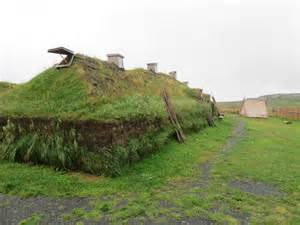
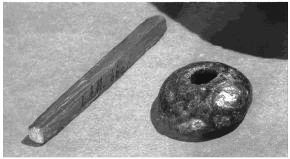
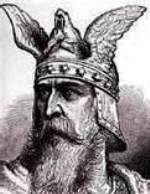
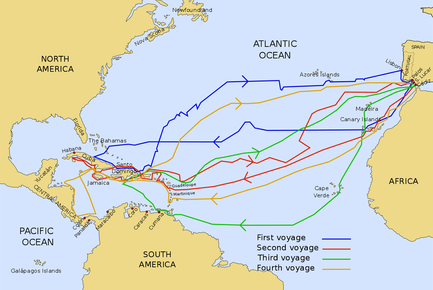
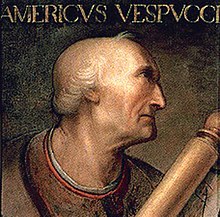
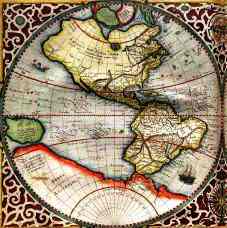
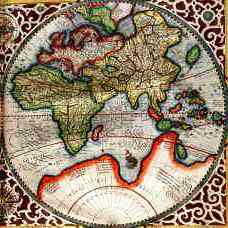
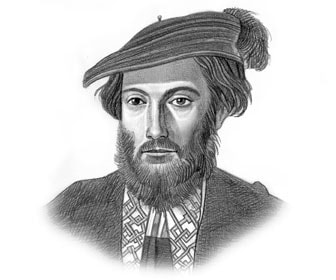
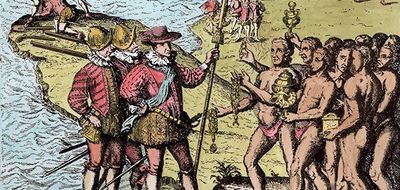
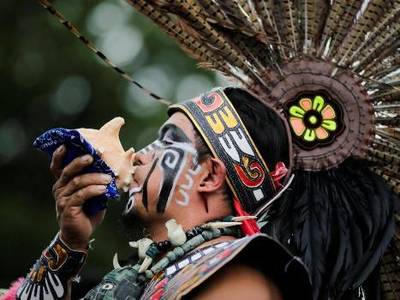
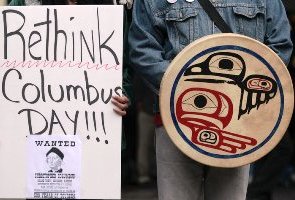
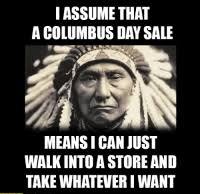
 RSS Feed
RSS Feed